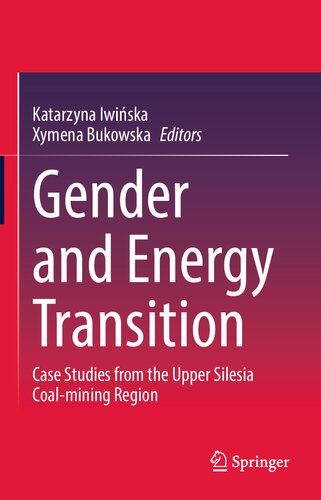

Most ebook files are in PDF format, so you can easily read them using various software such as Foxit Reader or directly on the Google Chrome browser.
Some ebook files are released by publishers in other formats such as .awz, .mobi, .epub, .fb2, etc. You may need to install specific software to read these formats on mobile/PC, such as Calibre.
Please read the tutorial at this link: https://ebookbell.com/faq
We offer FREE conversion to the popular formats you request; however, this may take some time. Therefore, right after payment, please email us, and we will try to provide the service as quickly as possible.
For some exceptional file formats or broken links (if any), please refrain from opening any disputes. Instead, email us first, and we will try to assist within a maximum of 6 hours.
EbookBell Team

4.8
84 reviewsThis volume takes an ecofeminist perspective in analysing societal changes related to energy transition, with a focus on Upper Silesia in Europe, following the closure of coal-mining industries in the region. It provides both a macro and micro view of how energy transition in societies built around an energy industry can lead to major shifts in societal and familial dynamics, and how women locate themselves in this transition period affecting the economy as well as social and environmental structures and values. Densely populated Upper Silesia in southern Poland, with one of the longest histories of industrialization, extractivism and environmental degradation in Europe, can be considered as a microcosm of regions that have undergone such changes due to energy transition. The traces of telling socio-economic changes, as well as the tangle of modernity and conservatism, are both clearly visible in the local region and society. The book documents the Silesian changes and highlights the female perspective: their culture, identities, as well as empowerment and the agency. The paradigm of feminist and masculinity studies helps in presenting the complexity and the challenges of the just energy transition.
This is a topical volume, given that many regions of the world are undergoing similar changes, and is an interesting read for decision-makers, policy experts, environmentalists, as well social scientists who study issues related to sustainability and environmental/societal challenges in energy transition.